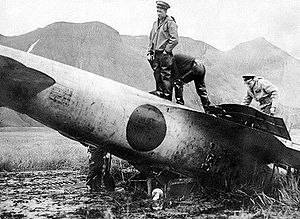 Today’s feature is from The Baton Rouge Advocate newspaper about a young man, Leon Standifer, going to war in 1942. As Professor Standifer states, “Everybody in the community expected men to go and fight, because we were in a war we could lose. I don’t know whether I wanted to go or not. I didn’t have any choice. Young men who were physically able went in to fight.” Times have certainly changed. Do read the article to the end where Standifer outlines his instruction and how he dealt with the fact that killing is a part of war.
Today’s feature is from The Baton Rouge Advocate newspaper about a young man, Leon Standifer, going to war in 1942. As Professor Standifer states, “Everybody in the community expected men to go and fight, because we were in a war we could lose. I don’t know whether I wanted to go or not. I didn’t have any choice. Young men who were physically able went in to fight.” Times have certainly changed. Do read the article to the end where Standifer outlines his instruction and how he dealt with the fact that killing is a part of war.
French Legion of Honor Medal Given during Navy Week
By Carol Anne Blitzer
“They taught us to look at (the enemy) as capable people fighting on the other team.” LEON C. STANDIFER, about military training
Leon C. Standifer does not consider himself a hero, even though on April 18 he received the French Legion of Honor Medal for his service during World War II. He was recognized during Navy Week on the visiting French frigate Germinal berthed at the Esplanade Street Wharf in New Orleans.
“I am representing a lot of skinny little kids who died,” said Standifer, 87.
Standifer learned through his military division newspaper that the French government had authorized its embassy in Washington, D.C., to give a few Legion of Honor medals to promote the French and American relationship.
“The primary requirement was that you were wounded fighting in France,” he said.
In active duty, Standifer achieved the rank of private first class with a Purple Heart and a combat infantry badge. His work after the war was considered as part of the recognition. He has written two books on his war experiences and participated in a symposium on the Battle of the Bulge at the National World War II Museum in New Orleans.
The ceremonies were attended by some 18 people from St. James Place, the retirement community where Standifer lives. He received the decoration in a replica of his Army uniform.
“When I was discharged, I was wearing a 38-long. This one is a 50-long,” he said with a laugh.
The ceremony had all the pomp and circumstance of an official military event with Standifer receiving medallions from the commanders of other Navy ships — American, British and Canadian.
“I told them I didn’t do a lot, but I represented the people who did,” Standifer said.
Standifer was born in Gulfport, Miss., and lived in several south Mississippi communities as his parents moved about during the Great Depression. After graduating from high school in Clinton, Miss., he went into the military. It was 1943, at the height of World War II.
“Everybody in the community expected young men to go and fight, because we were in a war we could lose,” Standifer said. “I don’t know whether I wanted to go or not. I didn’t have any choice. Young men who were physically able went in to fight.”
Standifer made a high score on the Army entrance exam and was assigned to the Army Specialized Training Program, a program at several universities to develop young officers by allowing them to get a college education along with their military training. He completed basic training and was set to go to the University of Arkansas to study engineering when the program was cut.
“They were planning for the landing at Normandy,” Standifer said. “They estimated the number of casualties to be very high. They said they didn’t have enough infantry.”
So instead of going to college, Standifer ended up in the 94th Infantry Division on the way to the European front. He landed on Utah Beach three months after the initial invasion at Normandy.
He was stationed at Lorient in Brittany with an assignment to surround a group of Germans holding a submarine base. “There were 5,000 of us and 30,000 Germans,” Standifer said.
In December 1944, while attacking a fortification, Standifer was wounded in the arm and leg. His buddies carried him to an ambulance, which took him to a hospital where he stayed for a month.
In the meantime, Standifer’s division was replaced in Brittany and moved to the Ardennes, where the Battle of the Bulge had begun.
“They got me there the day after my company had made an attack,” Standifer said. “It had taken 70 percent casualties.”
Because Standifer was the only experienced scout in his company, he was sent out at night crawling in ditches. “The temperature dropped to 10 degrees every night,” he said. “I crawled up to the German lines to see what they were doing.”
After three days and nights of scouting, he was sent to a hospital in England with pneumonia and frozen feet.
He returned to his company a few days after Germany surrendered and was assigned as a guard at a prisoner of war camp. Finally in 1946, Standifer returned to Mississippi. After graduating from Mississippi State University in 1950 with a degree in soil chemistry, Standifer worked for a couple of years, returned to Mississippi State and then went to the University of Wisconsin, where he earned his doctorate in plant physiology.
A friend in the Botany Department at LSU offered Standifer a job without an interview. “I really didn’t know Louisiana at all,” he said. “I thought I was going to stay for a while and leave, but I had such a good time here that I stayed.” He retired in 1990 after teaching botany and horticulture.
Standifer had served two terms on the faculty advisory committee for the LSU Press. “I knew how to write for scientific journals. I knew how a book had to be written to be accepted by an academic press, so I wrote a book about the war,” he said. The book, “Not in Vain: A Rifleman Remembers World War II,” was published by the LSU Press in 1992. “Binding Up the Wounds: An American Soldier in Occupied Germany” followed in 1997.
“I talked to psychologists and historians about what the war was like, what it did to young kids,” Standifer said. “The concept is that you grow up in one society and go to another one where your family is 12 men. You live by new rules simply because you have no choice.”
Standifer said that his training taught him something very important about war. It taught him not to be mad at the enemy.
“They taught us to look at them as capable people fighting on the other team,” he said. “If you can get the other team mad at you, they are going to make mistakes.”
Because he grew up hunting, Standifer was a good marksman. He learned quickly that killing was a part of war.
“Unfortunately you have to kill them if you are there,” he said. “I hedged at first. I was shooting them in the knee rather than killing them. At least they spent the rest of their lives with a peg leg.”
Courtesy of The Advocate.
Loyal Subscribers! We need some help. The purpose of our “Heart” section is to publish stories of the experiences, contributions and sacrifices of our military (Army, Navy, Air Force, Marines and Coast Guard) and public service personnel (police officers, fire fighters, EMS, merchant marines and others in the public sector) as well as stories of their families. Please search your memory and computer for a few and send them to Bill (CPT Otis) O’Quin at boquin@ix.netcom.com for possible publication. Thanks!
Important links for updated military/defense information:
The Daily News Briefing: Today’s News for the U.S. Military, their families and friends.
The Military Trivia Challenge: Register and test your knowledge about military history.
U.S. Department of Defense: Military Defense News.

